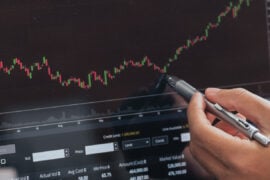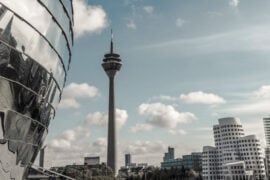In brief
On Wednesday, 15 December 2022, the European Commission adopted its proposals for a new EU Gas Package, through a recast of the Gas Directive and Gas Regulation. Below is a summary of the main updates.
Timing
Under the current timeline proposed by the European Commission, EU Member States would be required to transpose the Gas Directive into domestic law by 31 December 2023, and the Gas Regulation would apply as of 1 January 2023.
However, in reality, that timing will need to be confirmed on the basis of the legislative process, and it is possible (and even likely) that the new legislation would only enter into force on a later date.
Key changes under the new Gas Package
Conceptual changes – Gases and fuels
The proposal for the Gas Package introduces a series of new concepts and definitions, mainly aimed at: (i) different types of gases; (ii) the organization of the nascent hydrogen market/network; (iii) the empowerment of gas consumers, and (iv) certain new market/network concepts.
One of the key points of the new Gas Package is that it defines the notion of low-carbon hydrogen, gases and fuels, giving them a legal status. These definitions use the threshold of 70% greenhouse gas reduction, which has been made universally applicable.
Important to note, however, is that this threshold may become progressively more demanding. Though not provided for in the text of the Gas Directive, in its recitals, reference is made to the fact that this threshold “should become more stringent for hydrogen production in installations starting operations as from 1 January 2031 to take into account technological developments and better stimulate the dynamic progress towards the reduction of greenhouse gas emissions”.
In addition, it should be noted that the threshold of 70% is not entirely in line with other proposals tabled by the Commission under the Green Deal, such as the proposed revision of the Energy Tax Directive, and that accordingly, it may even be adjusted in its scope to be aligned with other EU legislation.
Hydrogen
The proposed Gas Package establishes a framework, and includes a wide range of definitions, related to hydrogen and in particular the technical components of the hydrogen network.
The two most notable aspects thereof are as follows:
- The definitions would only apply to those system components dedicated to transporting hydrogen of a high grade of purity (namely, not blended with natural gas). This would entail that, for example, underground gas storage facilities that are blending (even significant amounts of) hydrogen in their caverns will not count as hydrogen storage facilities under the proposed legislation. The natural gas system and the hydrogen system would thus be fully separate, at least from a legal perspective.
- Rather than extending the existing concepts of transmission system operator (TSO) and distribution system operator (DSO), the Gas Package provides for a new notion of “Hydrogen Network Operator” (HNO). This would apply to all transport operators on hydrogen networks, without distinction between the transmission or distribution levels. In the hydrogen network, the distinction between distribution and transmission would not exist; both are covered by the single notion of “hydrogen transport”.
Recognition and Certification of low-carbon fuels
In addition to recognizing and defining low-carbon fuels, the European Commission proposes to establish a certification framework for these low-carbon fuels.
Generally, the new certification framework should be established in a way that is essentially analogous to the one currently foreseen for renewable fuels (including biogas and renewable hydrogen) under the Renewable Energy Directive. This means that the Certification for low-carbon fuels will rely on a mass-balance approach, according to either voluntary schemes recognized at national or EU level or national certification schemes.
Low-carbon fuels will also be tracked in the upcoming European Union database, in a way that is analogous to renewable fuels. This will also apply to low-carbon fuels (including low-carbon hydrogen) that are imported into the European Union.
However, the European Commission will determine the precise methodology for assessing the greenhouse gas emission savings of low-carbon fuels (in other words, how to meet the 70% reduction threshold) through a Delegated Act. This Delegated Act should be adopted by 31 December 2024.
Market-related rules and principles
The Gas Package includes a number of provisions aimed, at least in principle, at improving market access and cross-border market opening for all gases. Under the new directive, Member States must ensure that national law does not prevent the cross-border trade in gas, in particular low-carbon and renewable gases, and that no undue barriers exist within the internal market for gases as regards market entry and exit, trading and operation.
Further, the Gas Package aims to restrict (regulatory) market interference with suppliers’ price-setting discretion, and contains a number of provisions to ensure that prices are set by supply and demand. A limited number of derogations are possible (for example, to ensure energy supply to poor and vulnerable household customers), but only under strict conditions.
Consumer rights
The Gas Package includes a series of new provisions to protect gas consumers, largely mirroring the existing provisions of the electricity market. The main provisions include: (i) clarifying basic contractual rights of consumers; (ii) regulating the right to switch; (iii) introducing the “active customer” status; (iv) specifying billing rights and obligations; (v) specifying rules on smart metering; (vi) introducing a protection regime for vulnerable consumers, and (vii) requiring the establishment of a national “single point of contact”, to provide customers with information on their rights, applicable laws and a dispute settlement mechanism.
Other key provisions
The Gas Package contains a set of other provisions changing and/or affecting the current framework applicable to the infrastructure for natural gas and hydrogen, which are more of a technical nature.
These provisions include:
- Provisions related to the unbundling, tariffs and third-party access requirements that apply in the hydrogen market
- Rules on the cross-sector working of unbundling (such as between hydrogen, electricity and gas)
- Provisions on the interactions between the natural gas and hydrogen networks, including with respect to financial and assets transfers between regulated asset bases, and repurposing assets between natural gas and hydrogen, and
- A new (advantageous) financial system for the injection, withdrawal and transport of renewable and low carbon gases in both the hydrogen and gas systems.





